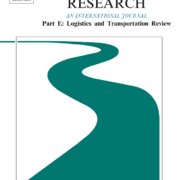Research paper accepted by Transportation Research Part E
Understanding causal relationships between traffic states throughout the system is of great significance for enhancing traffic management and optimization in urban traffic networks. Unfortunately, few studies in the literature have systematically analyzed causal structure characterizing the evolution of traffic states over time and gauged the importance of traffic nodes from a causal perspective, particularly in the context of large-scale traffic networks. Moreover, the dynamic nature of traffic patterns necessitates a robust method to reliably discover causal relationships, which are often overlooked in existing studies. To address these issues, we propose a Spatio-Temporal Causal Structure Learning and Analysis (STCSLA) framework for analyzing large-scale urban traffic networks at a mesoscopic level from a causal lens. The proposed framework comprises three main components: decomposition of spatio-temporal traffic data into localized traffic subprocesses; a Bayesian Information Criterion-guided spatio-temporal causal structure learning combined with temporal-dependencies preserving sampling for deriving reliable causal graph to uncover time-lagged and contemporaneous causal effects; establishing several causality-oriented indicators to identify causally critical nodes, mediator nodes, and bottleneck nodes in traffic networks. Experimental results on both a synthetic dataset and the real-world Hong Kong traffic dataset demonstrate that the proposed STCSLA framework accurately uncovers time-varying causal relationships and identifies key nodes that play various causal roles in influencing traffic dynamics. These findings underscore the potential of the proposed framework to improve traffic management and provide a comprehensive causality-driven approach for analyzing urban traffic networks.


